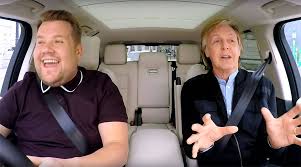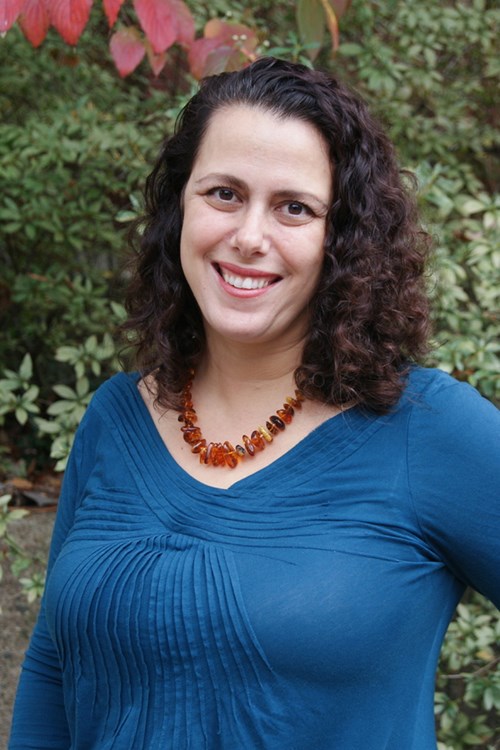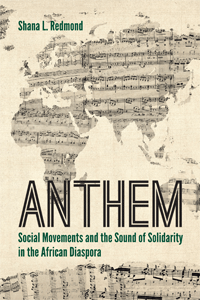Wishing for a Song
reflections on the power of music
Contents of Page
1. Wishing for a Song (Anne Goldberg)
2. The Spiritual Side of Anthems (Jay McDaniel)
3. NPR Podcasts on Anthems
4. Anthems as the Sound of Solidarity in the African Diaspora (Shana Redmond's Book)
2. The Spiritual Side of Anthems (Jay McDaniel)
3. NPR Podcasts on Anthems
4. Anthems as the Sound of Solidarity in the African Diaspora (Shana Redmond's Book)
|
"Is it strange to say that I am wishing for a song? I am wishing for music that pulls me close to the person next to me. I would like that person to be different from me — younger, older, a different race or religion. Maybe you’ve found that song. Maybe you wrote it. Feel free to share it. I’d love to hear it." (Anne Goldberg)
|
Wishing for a Song
|
The Spiritual Side of Anthems
Jay McDaniel
American "Anthems" |
I'm "wishing for a song," too. I love the phrase and identify with it immediately. There are many songs that make me feel close to people different from me, but sometimes -- these days -- I feel bereft of songs.
* I shared Anne Goldberg's essay with a friend and explained that I was wishing for a song, and my friend wondered aloud if I might want to try out some classical anthems. She sent me the playlist on the left called American Anthems from NPR's All Songs Considered. But of course I wondered, as might you: "What is an Anthem?" So I went to the NPR music website and found the following: What's an anthem? It's a stirring call to arms or an expression of collective emotion. Sometimes it's a recognition of injustice, a representation of an oppressed group, or an inspirational message of hope. But it always captures something much larger than itself — the spirit of a community, unified in its common feeling or cause, like the time a gay men's choir sang "Make Them Hear You" at a rally in Tennessee. Or the time counter protestors sang "This Little Light Of Mine" in Charlottesville, Va. to a group of white nationalists. NPR offers examples, too. The bugle call of taps. The swell of voices spontaneously joining to sing "We Shall Overcome." The urgency of "Fight The Power." Anthems are songs that tap into the collective emotions that listeners and performers have around an issue, whether it's joyful pride in one's country or rage over injustice...The stories behind these musical manifestos — why they are written and how they are embraced — can reveal much about the cultural pulse of the societies that create, share and celebrate them. Beginning July 4, NPR will zero in on 50 different anthems across a range of themes: patriotic, civil rights, anti-war, female empowerment, sports, mental health and more, in a series we're calling American Anthem. Given NPR's definitions, I may well be wishing for anthems, too. I wan to understand and appreciate the anthems of like-minded folks, and also those who are on the other side of the political spectrum. I want the voices of "others" in my ear. It's a religious thing. Here's what I think I know. I know that music does have an amazing capacity to do several things that we ordinarily associate with religion. It offers people a sense of identity, it gives them a worldview, it provides a sense of community, and it offers momentary touches of transcendence in the sounds themselves. And music can widen their souls.
I borrow the idea of soul-widening from the process philosopher Bernard Loomer. He writes of a soul with S-I-Z-E as follows and encourages us all to grow in width of soul, as best we can. "By S-I-Z-E I mean the stature of [your] soul, the range and depth of [your] love, [your] capacity for relationships. I mean the volume of life you can take into your being and still maintain your integrity and individuality, the intensity and variety of outlook you can entertain in the unity of your being without feeling defensive or insecure. I mean the strength of your spirit to encourage others to become freer in the development of their diversity and uniqueness. I mean the power to sustain more complex and enriching tensions. I mean the magnanimity of concern to provide conditions that enable others to increase in stature." (Bernard Loomer) In combination with other factors, music can transform us by helping us grow in the depth and capacity for relationships and sustain enriching tensions with strength and courage. It can hep us appreciate others in their uniqueness, and also ourselves. It can make us wider souls.
Sometimes Music can help us grow in spiritual wisdom.In addition, one of the functions of music in human life is to help us grow in emotional intelligence. We know what humans, ourselves and others, can and do feel, emotionally. This is because music is what feelings sound like. Frederic and Mary Ann Brussat of Spirituality and Practice have identified some of the positive emotions which music can communicate and evoke:
|
""
I close with a theological word. Insofar as songs and anthems do function in this way -- insofar as they introduce us to the emotional depth and range of human life -- they function as sacred music: that is, as music through which the lure of the universal soul, the lure of God, finds its way into the hearts of people. Thus music need not be 'about' religion or God to be sacred. It can be about love, or being seventeen, or being frustrated, or loving your community. It is sacred in its function: in its capacity for soul-widening and its capacity for introducing (what seem to me to be) the positive spiritual emotions of which all humans are capable, quite apart from questions of religious affiliation or the absence thereof. Yes, Anne Goldberg is exactly right. Music can transform us.
NPR Podcasts on Anthems
Anthems as the Sound of Solidarity
in the African Diaspora
"Anthem succeeds in foregrounding the significance of music as an oral tradition, and its ability to move people who may not be literate in the written word. Redmond ably traces music’s elemental power to move humans, and how it connects people to ideas, movements, and other activists. In general, the book succeeds admirably in making readers think about these songs in new ways.” |
Publisher's Description of Anthem by Shana RedmondFor people of African descent, music constitutes a unique domain of expression. From traditional West African drumming to South African kwaito, from spirituals to hip-hop, Black life and history has been dynamically displayed and contested through sound. "Shana Redmond excavates the sonic histories of these communities through a genre emblematic of Black solidarity and citizenship: anthems. An interdisciplinary cultural history, Anthem reveals how this “sound franchise” contributed to the growth and mobilization of the modern, Black citizen. Providing new political frames and aesthetic articulations for protest organizations and activist-musicians, Redmond reveals the anthem as a crucial musical form following World War I. Beginning with the premise that an analysis of the composition, performance, and uses of Black anthems allows for a more complex reading of racial and political formations within the twentieth century, Redmond expands our understanding of how and why diaspora was a formative conceptual and political framework of modern Black identity. By tracing key compositions and performances around the world—from James Weldon Johnson’s “Lift Ev’ry Voice and Sing” that mobilized the NAACP to Nina Simone’s “To Be Young, Gifted & Black” which became the Black National Anthem of the Congress of Racial Equality (CORE)--Anthem develops a robust recording of Black social movements in the twentieth century that will forever alter the way you hear race and nation." |
|
|
|
|








